Beginning on November 18 and continuing through January 4, you may notice a familiar name while ordering Chipotle online or through the Chipotle App. We at The Farmlink Project are grateful and proud to partner with Chipotle to empower people all across the country to help provide meals to food-insecure families when buying a meal of their own. This holiday season, Chipotle customers are able to round up their purchase to the next-highest dollar as a donation to The Farmlink Project. But how does a nonprofit organization, one that is less than a year old and run largely by college students, find themselves in a partnership with Chipotle? This story begins in the early summer months when Farmlink Project team members Maxwell Goldman and Caroline Ricksen reached out to Chipotle in an email, crossing their fingers that someone might notice it and respond.
On a Sunday evening, about two months ago, they received a response asking to talk at 8:30 the next morning. Farmlink Project team members found themselves being interviewed by Chipotle, excited by the opportunity but unsure what they were being interviewed for. Two days later, Chipotle reached out and said they wanted The Farmlink Project to be a part of their new Round Up initiative. Chipotle had interviewed over twenty food waste organizations but wanted to partner with The Farmlink Project because of what makes us unique. Maxwell reflects on why Chipotle was drawn to The Farmlink Project, “Chipotle recognized that we are different; we haven’t been around forever, we have no overhead costs which means that every single dollar goes to rescuing food waste, and we are authentic—we make mistakes, but are hungry to learn.”
Through this partnership, Chipotle has seen aspects of their organization within The Farmlink Project. Although Chipotle has grown worldwide, it began as an ambitious start-up taqueria and continues to be an innovative and forward-thinking company today. “They saw us as scrappy, authentic, and tenacious and wanted to do everything they could to help us,” commented Maxwell. The relationship with Chipotle goes beyond just the Round Up event; they have been in constant communication with our team, generating new ideas and seeking more ways to support The Farmlink Project. Chipotle put The Farmlink Project in contact with all of their farmers across the country with the goal of moving any surplus these growers may produce to communities in need. Since this relationship began over the summer, Chipotle has shown its passion to make an impact in reducing hunger and food waste. Chipotle released their Real Foodprint calculator in October 2020—a sustainability impact tracker that compares average values for Chipotle’s ingredients to their competitors against five metrics: reduced carbon in atmosphere, gallons of water, improved soil health, organic land supported, and antibiotics avoided.
Although the Round Up event with Chipotle will not last forever, the relationship with Chipotle has strengthened The Farmlink Project as a whole, beyond just the contributions to our cause from Round Up donations. We are incredibly grateful for Chipotle’s support and belief in The Farmlink Project. Together, Chipotle and The Farmlink Project can help reduce hunger and food waste throughout the country.
< Back
Beginning on November 18 and continuing through January 4, you may notice a familiar name while ordering Chipotle online or through the Chipotle App. We at The Farmlink Project are grateful and proud to partner with Chipotle to empower people all across the country to help provide meals to food-insecure families when buying a meal of their own. This holiday season, Chipotle customers are able to round up their purchase to the next-highest dollar as a donation to The Farmlink Project. But how does a nonprofit organization, one that is less than a year old and run largely by college students, find themselves in a partnership with Chipotle? This story begins in the early summer months when Farmlink Project team members Maxwell Goldman and Caroline Ricksen reached out to Chipotle in an email, crossing their fingers that someone might notice it and respond.
On a Sunday evening, about two months ago, they received a response asking to talk at 8:30 the next morning. Farmlink Project team members found themselves being interviewed by Chipotle, excited by the opportunity but unsure what they were being interviewed for. Two days later, Chipotle reached out and said they wanted The Farmlink Project to be a part of their new Round Up initiative. Chipotle had interviewed over twenty food waste organizations but wanted to partner with The Farmlink Project because of what makes us unique. Maxwell reflects on why Chipotle was drawn to The Farmlink Project, “Chipotle recognized that we are different; we haven’t been around forever, we have no overhead costs which means that every single dollar goes to rescuing food waste, and we are authentic—we make mistakes, but are hungry to learn.”
Through this partnership, Chipotle has seen aspects of their organization within The Farmlink Project. Although Chipotle has grown worldwide, it began as an ambitious start-up taqueria and continues to be an innovative and forward-thinking company today. “They saw us as scrappy, authentic, and tenacious and wanted to do everything they could to help us,” commented Maxwell. The relationship with Chipotle goes beyond just the Round Up event; they have been in constant communication with our team, generating new ideas and seeking more ways to support The Farmlink Project. Chipotle put The Farmlink Project in contact with all of their farmers across the country with the goal of moving any surplus these growers may produce to communities in need. Since this relationship began over the summer, Chipotle has shown its passion to make an impact in reducing hunger and food waste. Chipotle released their Real Foodprint calculator in October 2020—a sustainability impact tracker that compares average values for Chipotle’s ingredients to their competitors against five metrics: reduced carbon in atmosphere, gallons of water, improved soil health, organic land supported, and antibiotics avoided.
Although the Round Up event with Chipotle will not last forever, the relationship with Chipotle has strengthened The Farmlink Project as a whole, beyond just the contributions to our cause from Round Up donations. We are incredibly grateful for Chipotle’s support and belief in The Farmlink Project. Together, Chipotle and The Farmlink Project can help reduce hunger and food waste throughout the country.
Chipotle Partnership
Beginning on November 18 and continuing through January 4, you may notice a familiar name while ordering Chipotle online or through the Chipotle App. We at The Farmlink Project are grateful and proud to partner with Chipotle to empower people all across the country to help provide meals to food-insecure families when buying a meal of their own. This holiday season, Chipotle customers are able to round up their purchase to the next-highest dollar as a donation to The Farmlink Project. But how does a nonprofit organization, one that is less than a year old and run largely by college students, find themselves in a partnership with Chipotle? This story begins in the early summer months when Farmlink Project team members Maxwell Goldman and Caroline Ricksen reached out to Chipotle in an email, crossing their fingers that someone might notice it and respond.
On a Sunday evening, about two months ago, they received a response asking to talk at 8:30 the next morning. Farmlink Project team members found themselves being interviewed by Chipotle, excited by the opportunity but unsure what they were being interviewed for. Two days later, Chipotle reached out and said they wanted The Farmlink Project to be a part of their new Round Up initiative. Chipotle had interviewed over twenty food waste organizations but wanted to partner with The Farmlink Project because of what makes us unique. Maxwell reflects on why Chipotle was drawn to The Farmlink Project, “Chipotle recognized that we are different; we haven’t been around forever, we have no overhead costs which means that every single dollar goes to rescuing food waste, and we are authentic—we make mistakes, but are hungry to learn.”
Through this partnership, Chipotle has seen aspects of their organization within The Farmlink Project. Although Chipotle has grown worldwide, it began as an ambitious start-up taqueria and continues to be an innovative and forward-thinking company today. “They saw us as scrappy, authentic, and tenacious and wanted to do everything they could to help us,” commented Maxwell. The relationship with Chipotle goes beyond just the Round Up event; they have been in constant communication with our team, generating new ideas and seeking more ways to support The Farmlink Project. Chipotle put The Farmlink Project in contact with all of their farmers across the country with the goal of moving any surplus these growers may produce to communities in need. Since this relationship began over the summer, Chipotle has shown its passion to make an impact in reducing hunger and food waste. Chipotle released their Real Foodprint calculator in October 2020—a sustainability impact tracker that compares average values for Chipotle’s ingredients to their competitors against five metrics: reduced carbon in atmosphere, gallons of water, improved soil health, organic land supported, and antibiotics avoided.
Although the Round Up event with Chipotle will not last forever, the relationship with Chipotle has strengthened The Farmlink Project as a whole, beyond just the contributions to our cause from Round Up donations. We are incredibly grateful for Chipotle’s support and belief in The Farmlink Project. Together, Chipotle and The Farmlink Project can help reduce hunger and food waste throughout the country.
.png)

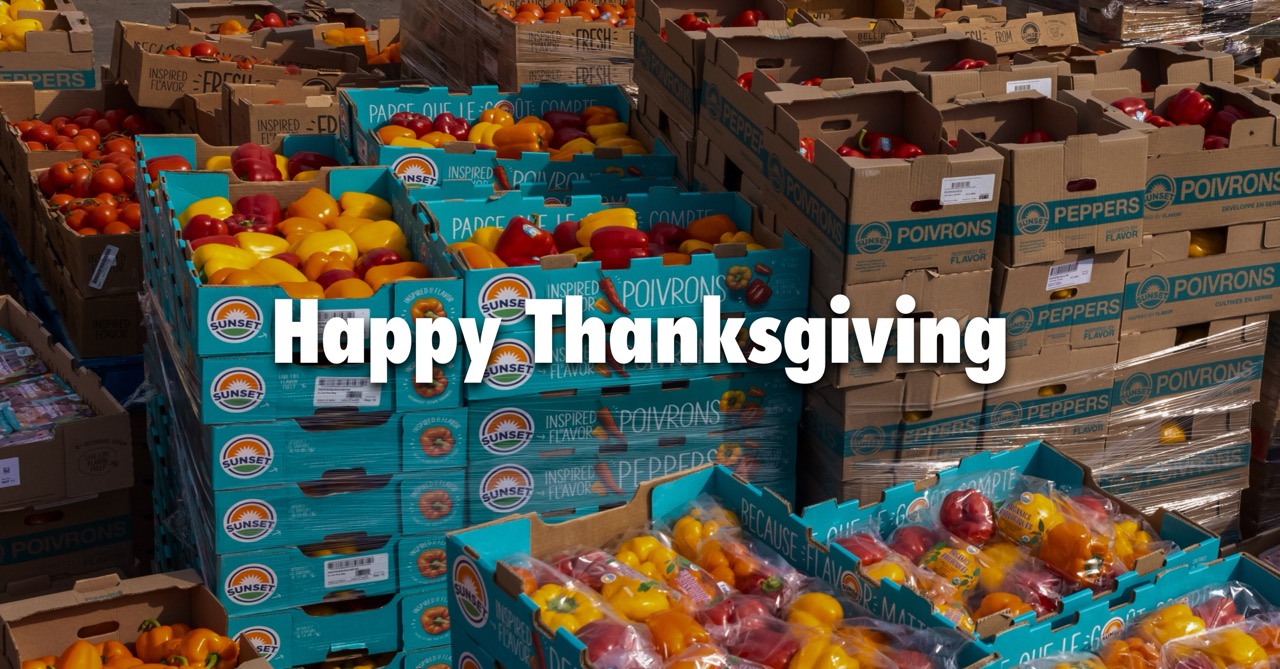
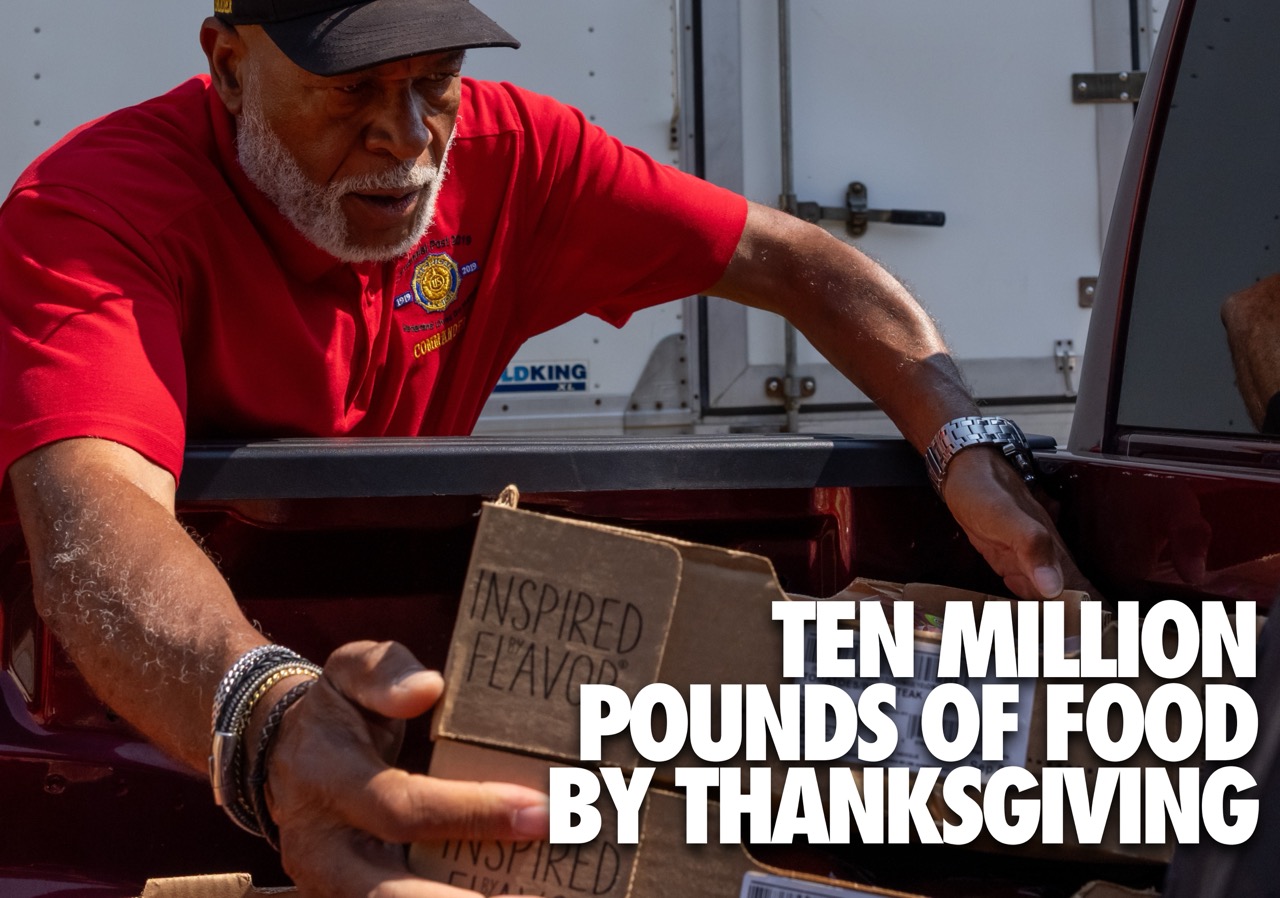
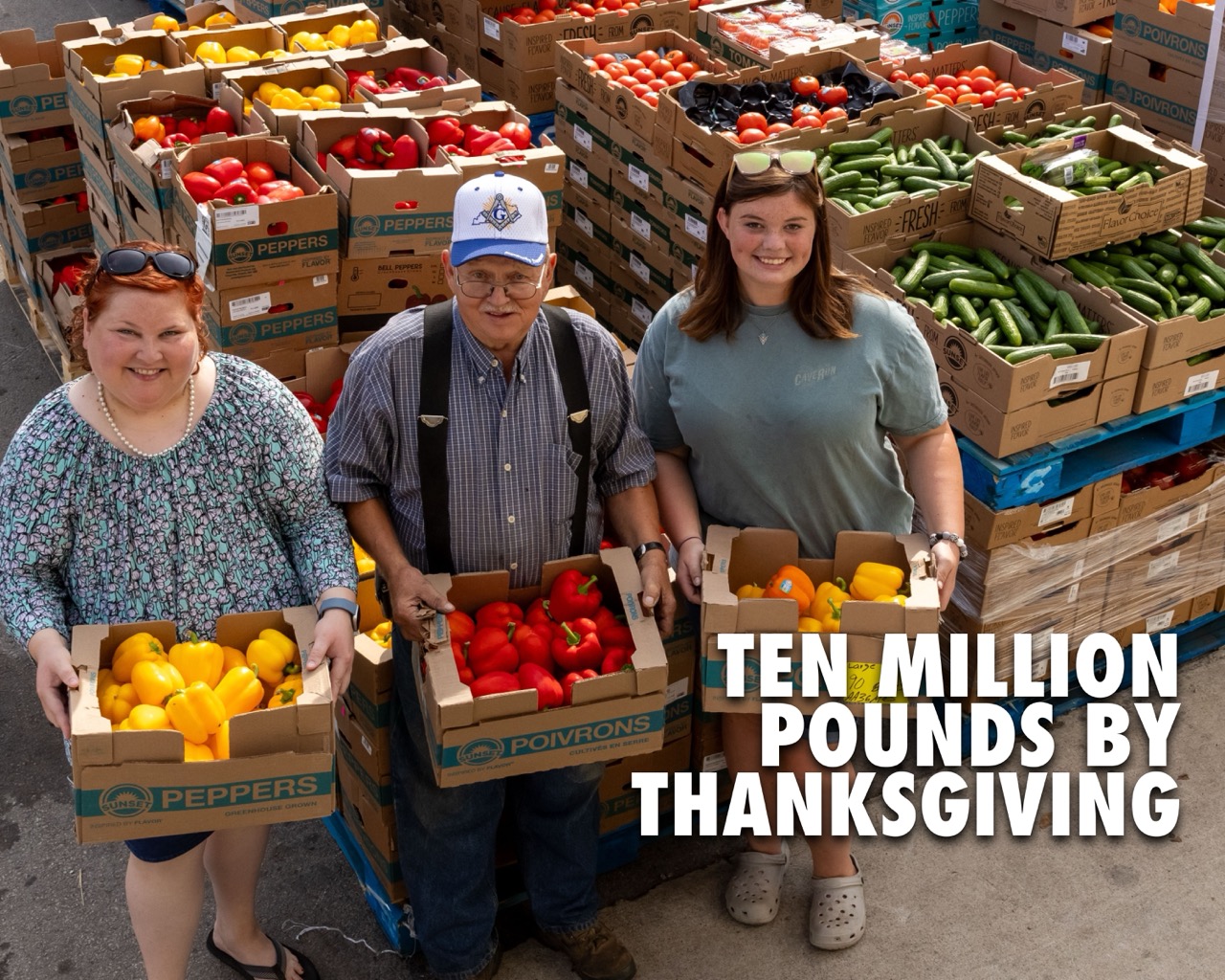
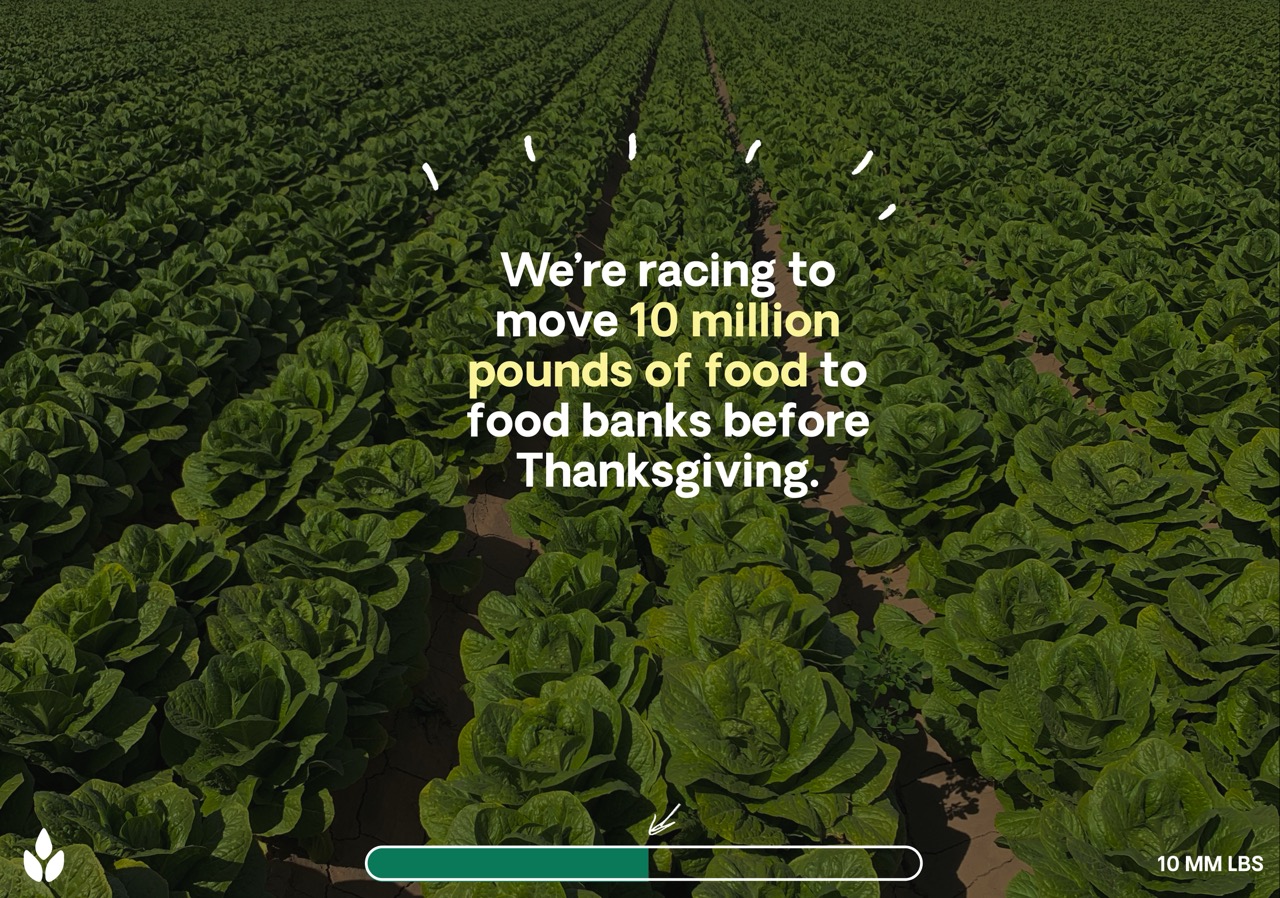
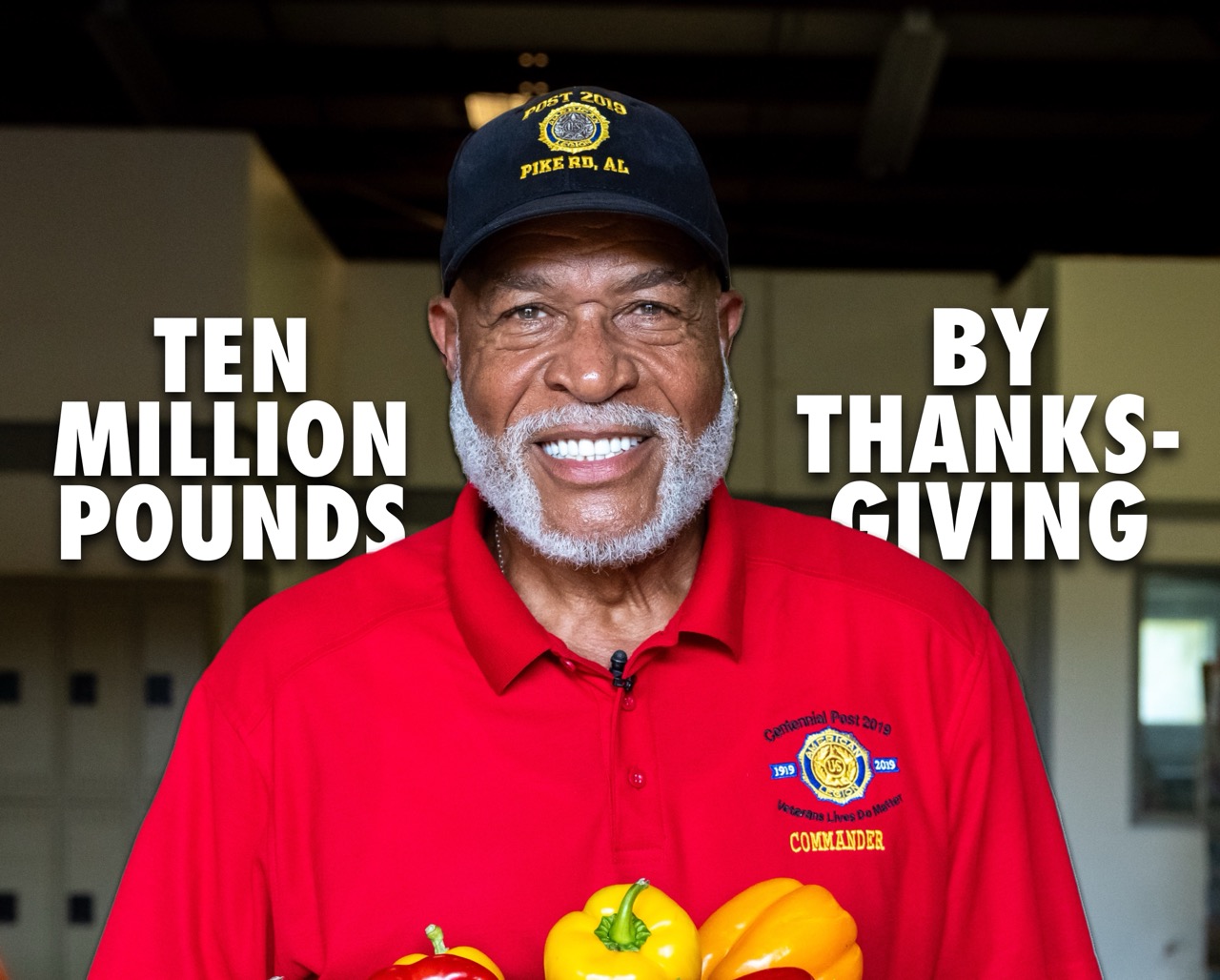
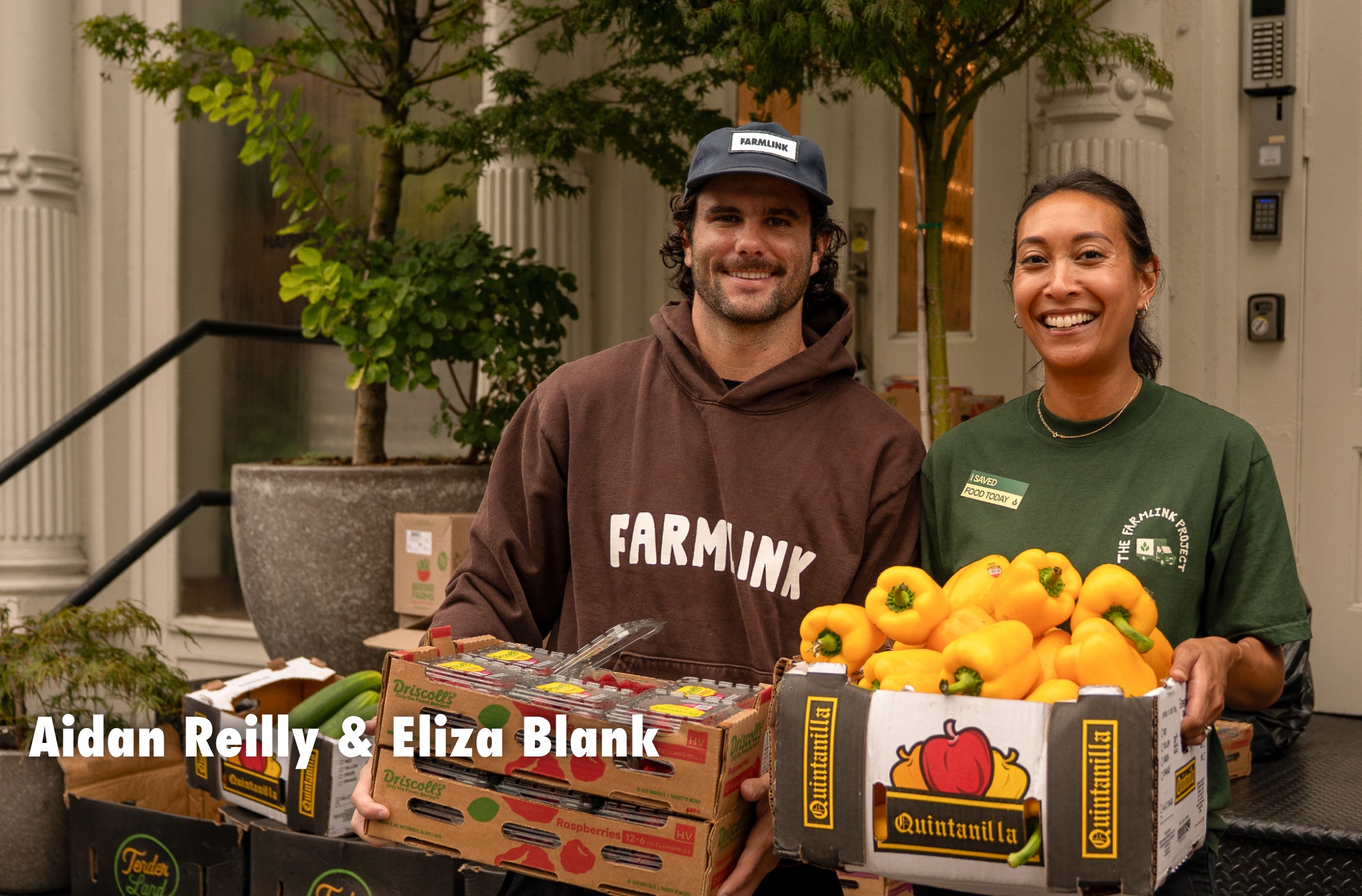
.svg)
.svg)
.svg)